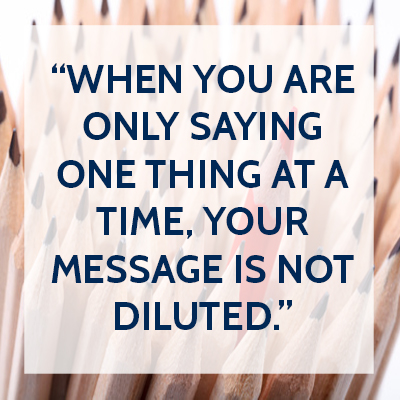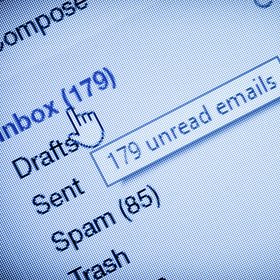The word “guru” is so overused that nowadays it’s practically an insult, but in the case of David Ogilvy, it’s true.
His thinking about what makes good advertising in the 1950s and 1960s was so influential, that he is today widely acknowledged as “the Father of Advertising”.
Here is his central insight on marketing:
“Big Ideas. Unless your advertising is built on a Big Idea, it will pass like a ship in the night. It takes a Big Idea to jolt the customer out of his indifference – to make him notice your advertising, remember it, and take action. Big Ideas are usually simple ideas.”
Now, how to find that one ‘big idea’ that will shape the entire way you market your business is beyond the scope of this email.
But actually, the concept of one ‘big idea’ is really useful on a more micro level too.
One of the big mistakes I see marketers make is imagining that the more information they give their readers, the more they will be seen as authorities, and the more value they will provide.
So, in each email they try to tell their audience everything they know about a certain subject.
Sometimes they pack a couple of different topics into one email, either providing a series of links or reminding their audience that there are just 3 days to register for their next event…. AND there’s a discount available on a particular item…. AND they should check out a great blog.
Their downloadable resources are long, meandering 50-page “guides” providing an overview of a topic rather than a strong argument, or else, “50 ways to accomplish X”.
The result is that their thinking isn’t clear and that their audience is confused.
The fact is that practically any piece of content or campaign you create – be it an individual email, a downloadable resource or even a whole sales funnel – will always be more powerful if it is focused on one key concept, rather than a mixture of themes or a string of calls-to-action thrown together.
When you are only saying one thing at a time, your message is not diluted.
Your audience has a chance to absorb what you say and get excited about it, before their attention is diverted.
They are more likely to act on what you say.
So next time you or your team sit down to write an email or ‘lead magnet’, resist the temptation, however strong, to go off on a tangent, to mention ‘just one more thing’, or to cover a related subject while you’re at it.
Remember David Ogilvy:
What is your big idea?








